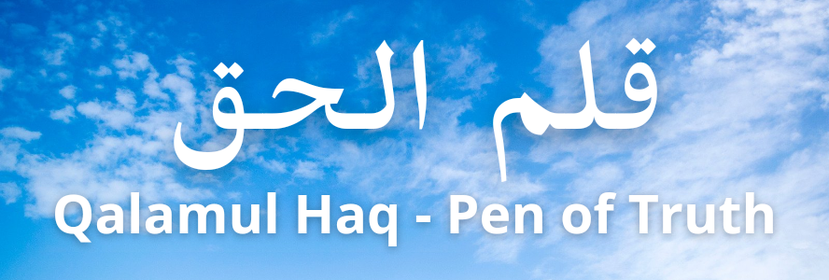- Details
- Hits: 973
Moulood-The Stance of the Sharia-Part 1
“Those who live after me will witness much controversy. Therefore, my Sunnah and the Sunnah of the pious and righteous Khulafaa are incumbent upon you. Hold firmly onto it. Cling to it (the Sunnah) with your jaws. Beware of innovation. Every new thing (i.e. new practice introduced as part of the Deen) is an innovation (Bid’ah). And every Bid’ah (innovation) is error manifest.” [TIRMIZI, IBN MAJAH, ABU DAWOOD]
In explaining this Hadith, Mullah Ali Qaari (rahmatullah alayh) said that Rasulullah (sallallaahu alayhi wasallam) commanded obedience to the Sunnah of the Khulafaa after him because they (Rasulullah’s Khulafaa) only acted in accordance with the Sunnah of Rasulullah (sallallaahu alayhi wasallam). This is stated in Mirkaatul Mishkaat.
Now, this custom of Meelaad is not to be found anywhere in the Holy Qur’aan. Allah Ta’ala has not commanded this customary Meelaad celebration. Neither can any substantiation for it be found in the Hadith of our Nabi (sallallaahu alayhi wasallam), nor in the practices of the noble Companions of Rasulullah (sallallaahu alayhi wasallam). No one can deny the great and true love which the Sahaabah had for our Nabi (sallallaahu alayhi wasallam). Is there any person who can claim greater love for Rasulullah (sallallaahu alayhi wasallam) than the Sahaabah? Can any person claim that he has understood the Qur’aan and the Ahaadith better than the great and learned Sahaabah of our Nabi (sallallaahu alayhi wasallam)? Can any person claim that the Sahaabah did not know how to manifest their love for Rasulullah (sallallaahu alayhi wasallam), and that Muslims of nowadays know how to manifest love for Rasulullah (sallallaahu alayhi wasallam)? Now let us ask: What is the reason for celebrating Meelaadun-Nabi? Whatever answer the upholders of the customary Meelaad will give we shall say that, that very same reason existed during the time of the noble Sahaabah. Yet, despite its existence the Sahaabah of our Nabi (sallallaahu alayhi wasallam) did not keep Meelaadun Nabi celebrations. The love of the Sahaabah for Rasulullah (sallallaahu alayhi wasallam) is indisputable. The Sahaabah had greater cause for rejoicing at the birth of Rasulullah (sallallaahu alayhi wasallam). The Sahaabah had greater cause than us for the manifestation of their love for Rasulullah (sallallaahu alayhi wasallam). The Sahaabahs had greater cause to commemorate the Holy Birth of our Nabi (sallallaahu alayhi wasallam) than us. Yet, not a single Sahaabi ever initiated or celebrated Meeladun Nabi. This custom was unknown to the Sahaabah, and it was unknown to the Tabieen (the followers of the Sahaabah). The great Jurists of Islam did not initiate this practice. They celebrated no Meelaadun-Nabi. In fact for a full six hundred years after our Nabi (sallallaahu alayhi wasallam) this custom was not in vogue among Muslims. Surely if this custom had any merit in it the great and beloved Sahaabah of our Nabi (sallallaahu alayhi wasallam) could not have overlooked it. If this custom had any Islamic significance surely, the great Fuqahaa (Jurists) and the Muhadditheen would not have shunned it. How is it possible that a custom which was originated and introduced into the Deen six centuries after our Nabi (sallallaahu alayhi wasallam) could be accorded Islamic status and assigned the category of near-compulsion)?
To be continued Insha Allah











